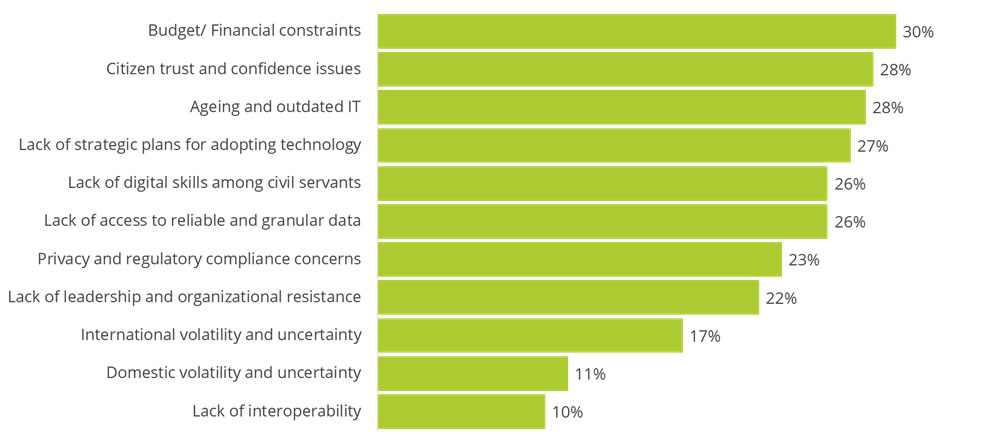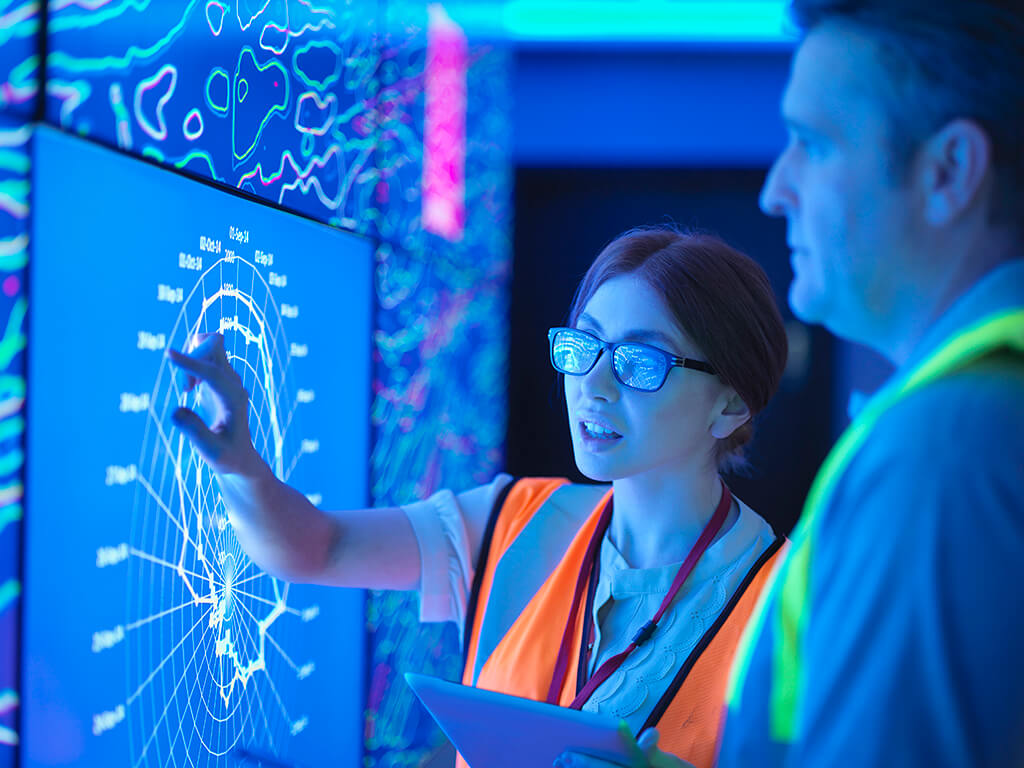A Trusted Society Will Bring Peace and Prosperity
Fujitsu / January 10, 2023
Public sector leaders worldwide are under pressure to deal with the convergence of economic, political, and environmental societal shifts. Trusted ecosystem collaboration and the use of data are the critical success factors to weather these storms of disruption.
Critical COVID-19 pandemic recovery funds, a global climate crisis, international economic and political volatility, an ageing population, and the opportunities and challenges of new technologies such as artificial intelligence are converging. These seismic changes require public sector leaders around the globe to collaborate with private enterprises, non-governmental organizations, and citizens to embrace paradigm shifts.
・Digitizing public services will not be sufficient. Senior government leaders will have to reimagine services for citizen empathy, operational excellence, and social inclusion.
・Expecting first responders to deal with spiraling manmade safety and security risks and natural disasters is unrealistic. Public services will have to orchestrate emergency preparedness and early detection and warnings with society as a whole.
・Connected, autonomous, shared, and electric vehicles alone will not eliminate congestion, pollution, and traffic accidents in cities. Urban design and transportation business models will need to make convenient, accessible, affordable, safe, and environmentally sustainable mobility possible.
・Instrumenting buildings and infrastructures with energy consumption and air quality sensors will not improve the sustainability of the natural and built environment. Buildings and urban spaces and the grids that connect them (telecoms, transportation and logistics, energy, and water) must be reengineered for net-zero impact and resilience to climate change.
Contents
Trust as the Currency of the New Era

Public sector leaders around the globe cannot navigate these storms of disruption alone. In fact, according to an IDC survey of 230 European government executives, 20% or more of the respondents indicated that they are hindered by budget scrutiny, legacy systems and processes, capacity and skill gaps, lack of access to reliable and granular data, organizational resistance to change, lack of strategic plans for adopting and developing technology, and concerns about privacy, legal and regulatory compliance, and limited citizen trust.
Key Challenges to Technology-Enabled Innovation in Government

Source: IDC Europe, Government Insights, August 2022; Respondents = 230
Also, the very technologies that are helping them achieve their strategic outcomes, have also democratized misinformation and expanded the perimeter of cyber vulnerabilities.
Public sector leaders will succeed only if they:
・Collaborate with the ecosystem of private enterprises, academia, non-governmental organizations, and citizens
・Turn data into intelligent insights to make evidence-based policy, operational, and citizen service decisions.
The common currency of those two critical success factors is trust. Trust is the connective tissue that will enable public institutions and private enterprises to design and operate win-win ecosystem business models. Trust is also the foundation of ethical, transparent, and secure collection, sharing, and analysis of data to extract intelligent insights. Trust is the pillar that gives citizens confidence that governments will use data and technology to nudge their behavior towards the common good, without violating their dignity.
Trust powered ecosystems and intelligent use of data will enable public sector leaders to:
・Enable high-performing public administrations that leverage 360° knowledge of citizen needs and preferences to make the bureaucracy invisible and services human-centric, thus including the most vulnerable groups, such as refugees, the elderly, and people with disabilities.
・Scale the capacity and capabilities of public safety and security agencies to use early warning systems, emergency communication systems, cyber-security threat intelligence biometrics, and video intelligence to help society prevent, react to, and recover from cyberattacks, criminal acts, and natural disasters, while ensuring officers are safe and productive and citizens go about their daily business unscathed.
・Connect modes of transportation through vehicle-to-everything connectivity, smart traffic management, smart logistics, smart journey planning, integrated ticketing, and intelligent electric charging infrastructure that enable seamless and sustainable mobility experiences.
・Deploy intelligent grids and advanced digital simulation capabilities to dynamically transition towards a net-zero, circular, and resilient built environment.
Public sector leaders who can scale the impact of trusted ecosystems and intelligent use of data will unleash peace and abundance. Those that don't will waste the unprecedented funding that post-pandemic recovery plans have made available, further damaging citizens' trust in the public sector.
Set your sights on building a prosperous, sustainable society
Trusted Society
Fujitsu introduced a key focus area called ‘Trusted Society’ as a part of its business brand, Fujitsu Uvance.
We aim to create an environment-first, resilient society in which people can live in peace and prosperity.

Editor's Picks






